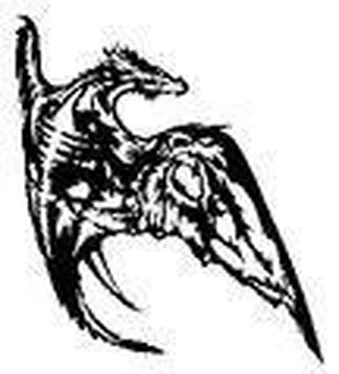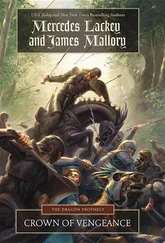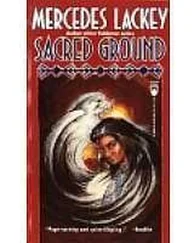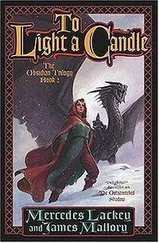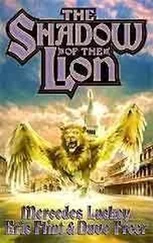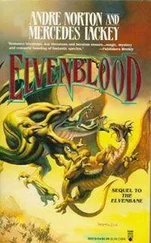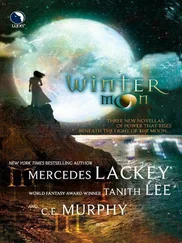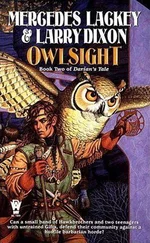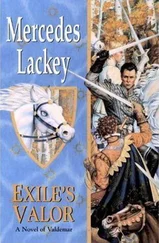Mercedes Lackey - Alta
Здесь есть возможность читать онлайн «Mercedes Lackey - Alta» весь текст электронной книги совершенно бесплатно (целиком полную версию без сокращений). В некоторых случаях можно слушать аудио, скачать через торрент в формате fb2 и присутствует краткое содержание. Жанр: Фэнтези, на английском языке. Описание произведения, (предисловие) а так же отзывы посетителей доступны на портале библиотеки ЛибКат.
- Название:Alta
- Автор:
- Жанр:
- Год:неизвестен
- ISBN:нет данных
- Рейтинг книги:5 / 5. Голосов: 1
-
Избранное:Добавить в избранное
- Отзывы:
-
Ваша оценка:
- 100
- 1
- 2
- 3
- 4
- 5
Alta: краткое содержание, описание и аннотация
Предлагаем к чтению аннотацию, описание, краткое содержание или предисловие (зависит от того, что написал сам автор книги «Alta»). Если вы не нашли необходимую информацию о книге — напишите в комментариях, мы постараемся отыскать её.
Alta — читать онлайн бесплатно полную книгу (весь текст) целиком
Ниже представлен текст книги, разбитый по страницам. Система сохранения места последней прочитанной страницы, позволяет с удобством читать онлайн бесплатно книгу «Alta», без необходимости каждый раз заново искать на чём Вы остановились. Поставьте закладку, и сможете в любой момент перейти на страницу, на которой закончили чтение.
Интервал:
Закладка:
Well, while Kiron doubted that the prince himself would have any objections to being put in with boys from the lowest levels of society, anyone with so much as a single drop of noble blood in his veins would probably have a fit the moment word got out that a prince was being housed with the peasantry. And the screams of outrage would be heard on the top of the Great Tower of the Royal Palace.
“You could move in at any point, including tonight,” Kiron told them all.
Toreth grinned. “Then I am sending a runner for my things. Mother has an entire herd of female relatives visiting her, and the gabble and cackle is like to drive me mad.”
“And I believe I shall do likewise,” Gan drawled. “It’s going to take me a quarter moon to get these quarters comfortable anyway, and I might as well start now.”
That started the stampede, and before long, as Kiron joined Avatre in their quarters, he could hear the coming and going of numerous servants, bringing the boys’ belongings from their homes. He even overheard Toreth generously sending his servants after the belongings of Huras, Kalen, and Pe-atep, who obviously had no servants of their own.
And shortly after that, he heard much coming and going from Gan’s quarters, and heard that familiar, lazy drawl cheerfully distributing “extra” comforts “that there just is no room for, hang it!” among his wingmates. Soon, there were trades going on, as what had been personal belongings (or “supplies” pressed upon sons by anxious mothers) were distributed, through the alchemy of friendship, across the entire group.
“Listen to them! They’re acting as a unit,” he told Avatre, wonderingly. “They haven’t even got dragons yet, and already they’re a real wing!”
She nodded quite as if she understood, and dug herself a little further down into the warm sands. As far as she was concerned, life was perfect, for the hot sand was a great deal more comfortable for her than the stone of the courtyard she had been using.
And as the excited chatter and the other sounds of eight boys settling into new quarters died away, Kiron settled down himself for the night. It was an auspicious beginning, a good foundation to build on.
And with that cheerful thought in his mind, he allowed himself to drift into sleep.
SEVEN

EIGHTeggs were cradled in the hot sands of their pens. Eight anxious young men watched and brooded over them quite as if they had laid the eggs and not the dragon mothers. No longer were they playing dragon boy to the dragons of other Jousters; they knew what they needed to know about the tending of ordinary dragons. With plenty of time on their hands, they were now studying every scroll on dragons that they could get their hands on in good earnest—and short of getting their hands on the scrolls in the keeping of the Magi, they had access to every other scrap of papyrus on the subject in Alta.
Nor was that all, for thanks to Toreth’s family, there was a set of two tutors, one of them a noted scholar of history, who arrived every day to teach all the boys. As what they were learning was the history of the war with Tia, plain and unvarnished, and the history of mankind’s use of dragons, none of them objected, not even Orest.
Two things, however, had sorely puzzled Kiron since he had begun to move about the city and get to know these people who were his own. Both puzzles seemed such an accepted part of Altan life that he was not entirely sure how to ask about them.
The first was not so much a puzzle as a non-sequitur. When he first realized it, it had been something so entirely alien to his way of thinking that it had come as a shock.
And yet, it was a simple fact. The Priests of the Gods were not the ultimate authority in Alta. They did not even rank as a close second. The very notion seemed blasphemous, and yet everyone here took it for granted.
In Tia, even the Great King consulted with the Priests of the Gods on every occasion, and woe betide him if he failed to heed their words! Terrible things could, and did, happen to one who went against the will of the temples. Kings had been toppled from their thrones in the past, and it was not always the hand of a god that did the pushing.
Of course, the Great King himself was a priest, and a High Priest at that, but so far as Kiron been aware, he was a magicless man, and that made all the difference. The priests controlled all magic, for all those born with magic were swiftly taken into one temple or another as soon as their talents became evident. That included Healers, who were, in Tia, Priests and Priestesses of Te- oth, or rather, his Tian equivalent.
In Alta, Healers were a separate class that included those who Healed with herbs, with the knife, and with prayer, as well as those who Healed with their own special magic.
Things were very different here.
The only “magicians” who were not among the priestly caste in Tia were charlatans, street performers, who accomplished their “wonders” with trickery and sleight-of-hand. Male and female, young or old, whether or not they or their families were willing, once someone showed the signs or was detected by another magician, into a temple he went. So, although the priests seldom overtly exercised their power, they, and not the Great King, were the ultimate authority in Tia.
But here, it seemed, things were very different. There were those who went into the temples who had certain Gifts and Callings—the ability to see the future or what was happening at a distance, to hear the thoughts of beasts (like Aket-ten) or even the thoughts of men. There were rumors of those who were able to speak with the dead who went into the Temple of the Twins. And that was the end of priestly magicians. All the rest of the priests were entirely without magic, either devoted by reason of avocation, or having more in common with the scribes than the magicians.
As for the Healers, they stood apart from all and served no one god, but served all of them, collectively. Their enclaves, something like temples, but with less than a tenth of their space devoted to a sanctuary filled with images of every god and goddess in Alta, were distributed all across the city. And that was a shock all by itself; it was hardly to be thought of that one didn’t run to the Temple of Te-oth when one needed a Healer!
But there was a greater shock as far as Kiron was concerned, because not only did the practitioners of magic not belong to the priests, they had their very own caste. And in its way, this caste was even more exalted than that of the rulers of Alta.
They were the Magi, those Tians called “sea witches” since so much of what the Magi had once done involved the sea and water-magic. That was no longer the case, it seemed.
A Magus was one who worked—well— magic. The Magi used spells to work their will upon the world, to channel strange powers; spells that were chanted over incense, sung from the tops of towers, or murmured in hidden chambers in the bowels of the earth. Spells that did things—like the spells that called up the fierce storms and flung them down the Great Mother River to drive the dragons and Jousters of Tia to earth and ravage the countryside.
There were rumors of other spells that they had not yet unleashed. Spells to call up fire from the earth or down from the sky. Spells that not only repelled the hungry dead, but compelled them to serve or to haunt those the Magus indicated. The curse of a priest was potent—but in Alta the curse of a Magus was doubly so and doubly feared, for the curse of a priest relied on whether or not his god was moved to implement the curse, but the curse of a Magus depended only on his own power and his own will.
Читать дальшеИнтервал:
Закладка:
Похожие книги на «Alta»
Представляем Вашему вниманию похожие книги на «Alta» списком для выбора. Мы отобрали схожую по названию и смыслу литературу в надежде предоставить читателям больше вариантов отыскать новые, интересные, ещё непрочитанные произведения.
Обсуждение, отзывы о книге «Alta» и просто собственные мнения читателей. Оставьте ваши комментарии, напишите, что Вы думаете о произведении, его смысле или главных героях. Укажите что конкретно понравилось, а что нет, и почему Вы так считаете.
